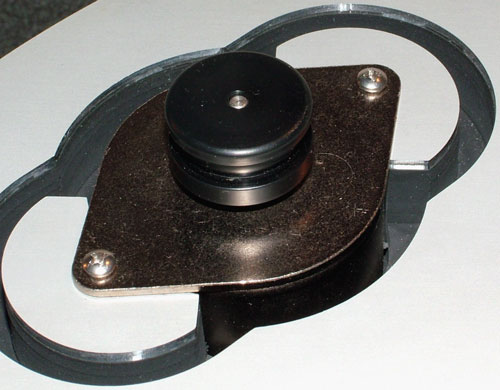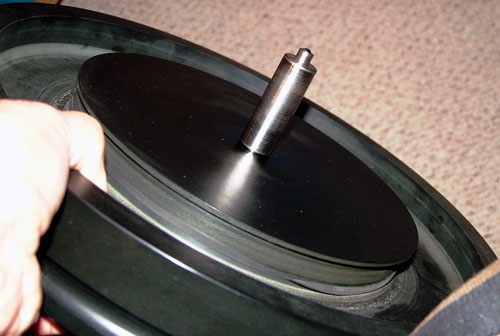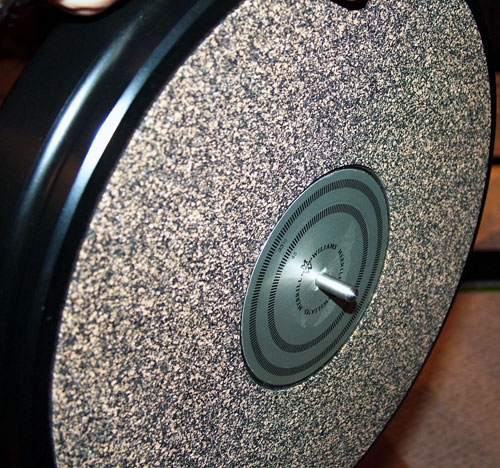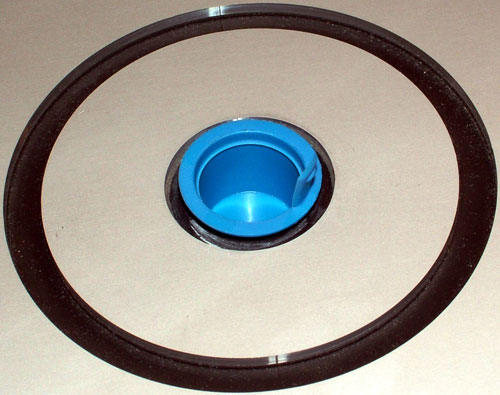Engineering the Sound (or lack thereof) through Energy Management
Unpacking the R.E.A.L. 101 gave me the first glimpse and full visualization of the far reaches in the execution of this design in terms of how it copes with the four sources of energy, or vibrations, that are present in an integrated turntable design such as the R.E.A.L. 101. These are handled by the three main parts of this turntable system, the plinth and laminate, the isolation feet, and the platter. In George Merrill’s white paper regarding the design of the R.E.A.L 101, he describes these four sources of energy as follows:
- The self generation and internal coupling of energy produced by the motor, drive system, platter support bearing, and platter.
- The mechanically coupled energy that enters the support feet.
- The air born energy contained within the operating environment (for instance, how close is your turntable to your speakers or subwoofers!)
- Energy generated by the stylus groove contact during tracing/playing the record. (If you recall my review of the ZXY Omega S phono cartridge, its design imbued an interesting approach to properly draining some of this energy away from the playback system.)
Examining the turntable plinth prior to assembly reveals the meticulous attention to detail and the ends to which the Merrill Williams R.E.A.L. 101 copes with each of these energy sources. For instance, here is a picture of the motor as it is mounted in the plinth. Notice that the motor is effectively mounted in an “island” all unto itself within the R.E.A.L. rubber/aluminum plinth structure.
The platter is made of a non resonant, non conductive, dimensionally stable, and heat resistant plastic resin called Bakelite. It is a design that contains machined outer edges and valleys that assist in draining vibration away from the record surface. The single-piece platter is also machined so that it actually acts as outer and inner platter by having an inner machined pulley area that allows for the drive belt to remain hidden, optimizes speed stability, and maximizes the efficiency of the small motor’s torque. This, as well as the additional ridge machined within the “inner platter”, combine as an approach that is very effective in isolating and draining the motor vibration and any internally generated energy from the bearing and bearing well, away from the platter surface.
Any energy that does make it as far as the platter surface is further isolated from the record surface by the cork and rubber mat that is affixed to the platter’s record contact area.
The bearing and bearing well are mounted in a decoupled “island” within the rubber plinth and aluminum structure. As such, the bearing well, bearing, and platter as a system also benefit from complete isolation from the rest of the turntable playback system.
- ← Previous page
- (Page 2 of 3)
- Next page →





Salve necessità replacement motor turntable PRINCETON 15 V 300 RPM 3W
For turntable MERRILL H + AL 33/45
DISPONIBILE ??
GRAZIE
PRINCETON 300 RPM 12 V 60 HZ 3W
GRAZIE
Saluti Fabio,
George Merrill mantiene ancora un inventario di tali motori, nonché di altre parti per sostenere i suoi giradischi più anziani.
Prega di contattare direttamente il Sig. Merrill e sono sicuro che sarà in grado di aiutarvi con le vostre esigenze.
Buona fortuna.
Cheers,
Ray Seda